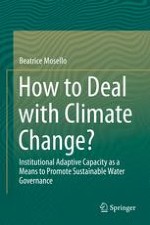2015 | OriginalPaper | Buchkapitel
2. Water Governance Throughout History and Science
verfasst von : Beatrice Mosello
Erschienen in: How to Deal with Climate Change?
Aktivieren Sie unsere intelligente Suche, um passende Fachinhalte oder Patente zu finden.
Wählen Sie Textabschnitte aus um mit Künstlicher Intelligenz passenden Patente zu finden. powered by
Markieren Sie Textabschnitte, um KI-gestützt weitere passende Inhalte zu finden. powered by
